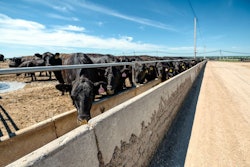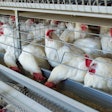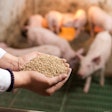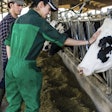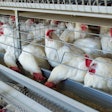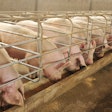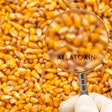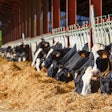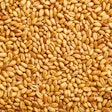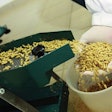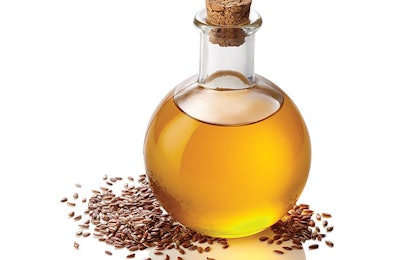
Linseed oil can reduce the degradation of dietary protein in the rumen
Linseed meal was the “oil meal” of old times in the U.S., long before soybeans were introduced. A quick look at the first issue of Feeds and Feeding (1897) will attest to this fact. However, today, soybean meal is the protein source of reference, not only for beef but for all farm animals. Nevertheless, linseed is not just a protein source and, in fact, it is its oil today that is being prized. The reason is simple: Linseed is the plant raw material with the highest concentration of omega-3 fatty acids, followed by rapeseed and soybean oils.
The role of omega-3 fatty acids in animal (and even human) nutrition are already well known when it comes to the immune system. Nevertheless, and according to the latest NRC beef publication, linseed oil, applied in measure, can reduce the degradation of dietary protein in the rumen. I want to believe other oils rich in omega-3 fatty acids have the same properties, but I am still looking into it. Nevertheless, this fact can be good or bad news.
When ruminants are fed a high-quality protein source (soybean meal, you say?), then we want a certain fraction to be left untouched by the rumen microbiota and pass as-is to the stomach for the benefit of the animal (hence the term bypass protein). Here, adding linseed (or other) oil – and always at minimal quantities – can be beneficial. In contrast, when feeding a low-quality protein (you name it) we want it to be used almost exclusively by the rumen microbiota as the resulting microbial protein that will eventually reach the stomach will be of a better quality (amino acid profile and/or digestibility). At least, that’s the theory.
In a very interesting conversation with a large feedlot operation in the U.S., we discussed whether one can feed linseed oil and rumen-protected protein, with or without good and/or bad protein sources. After much discussion and debate, we decided to run a number of field demonstration trials to find a cost-effective combination that would enable fast-growing beef cattle to utilize dietary protein to the maximum.



